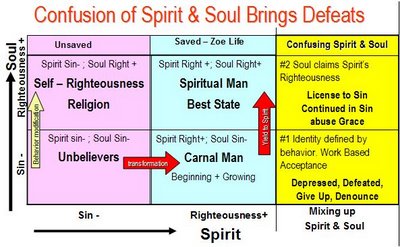Vision Statement
Vision Statement is a visualization, a picture of what it will look like as you accomplished the milestones in your mission. It is what you become in 5, 10, 15, or 20 years. It is adding a time dimension and a visual dimension to the mission. It makes the mission come alive. It gives focus. It shows the benefits of the mission clearly and gives motivation. Mission gives the purpose(why), and vision shows the picture(what and sometimes includes the how over time ).
Hab 2:2 Then the LORD answered me and said, "Record the vision And inscribe it on tablets, That the one who reads it may run.
Vision gives a clear picture that can be easily recorded in the mind and in the heart so that they can quickly run to bring it to pass.
Jesus said unto him, If thou canst believe, all things are possible to him that believeth. Mark 9:23
We need first to have a picture that we can believe in and then it outcome will be certain. Prov 29:18 (KJV) Where there is no vision, the people perish. Or in (ESV) Where there is no prophetic vision the people cast off restraint. Vision gives the guides.
Pro 23:7 For as he thinketh in his heart, so is he
Examples of Vision Statements
Follow me and I will make you fishers of men Mt 4:19.
Jesus, when speaking to fishermen, used the picture that they could best understand. 'Making Disciples' is like having a big catch of fish - net breaking load of fish. They can associate with it and can feel the joy and excitement of such a catch.
To the woman at the well, he said, "Follow me and you will never be thirsty again". John 4:13 He also said "I am the bread of life; he who comes to Me shall not hunger" John 6:35
When painting a vision, use things that the readers can best understand and be motivated by. Put them in the context and background of the readers. Use their terms.
Here are additional visions:
John 3:16 "....whoever believes in Him should not perish, but have eternal life."
John 7:38 "He who believes in Me, .... From his innermost being shall flow rivers of living water.'"
John 8:32 and you shall know the truth, and the truth shall make you free."
John 11:25 Jesus said to her, "I am the resurrection and the life; he who believes in Me shall live even if he dies,
Mat 11:28 "Come to Me, all who are weary and heavy-laden, and I will give you rest.
Notice that the benefits are to the people involved - who believed.
Vision must include the benefits to the corporations and to the customers, employees, and owners in the order.
Vision must be as specific as possible so that the reader can have a clear vision in their mind and in their heart. Most corporate vision speaks of revenues, market ranking, and physical sizes like the number of people and the number of countries or cities they will be operating in. These are ok but there needs to be further illustrations and other areas as well. What do those measures mean to the customers, the employees, and the owners. Listed corporations like to have measures in terms of the shareowner's values, such as Total Shareholder Return (TSR). But one should remember that profits are a by-product of providing good value to customers with good execution by the employees. In painting the vision, one should describe the impacts to the customers, and to the employees. The corporate cultures, the working environment, the pre-sale and after-sale, and other things that relate to employees and customers.
The clearer the vision, the easier it will be in deciding the strategies and their execution later.
Where are the measures and the timing?
The above vision statement, like, "become fishers of men" is visualized mission statement of "Go make disciples". Jesus used fishers of men because Peter and the others are fishermen. They will understand the vision and mission well.
The measurement of the catch is very obvious - the number or the weight of the fish caught. The best measurement is one that is very easy to see. You don't need to have an instrument to tell. A good one is reaching a destination. When you reach a destination, you know you have arrived.
e.g. Putting a man on the moon by the end of the decade is a good vision statement.
The measure is obvious - a man landed on the moon (alive and return is implied).
The timing is before the end of the decade (it was by 1970).
Jesus did not specify the targets and timing then. It was up to the disciples each to determine for themselves when they followed Jesus and learned more.
- - - o o o - - -
BJ#0 Business According to Jesus TOC --|--
BJ#4 Your Values

